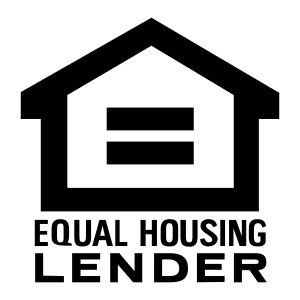From Home Loans to HELOCs
Fixed & Adjustable Rate Home Mortgage Loans in the Atlanta Area
Home Equity Line of Credit* (HELOC)
Borrow against the equity you’ve built up in your home for renovations, debt consolidation, big ticket expenses and more!
- Usage Flexibility – Funds can be used for almost any purpose without restrictions
- Borrow Only What You Need – As a revolving line of credit, you only take out what you require at the time
- Lower Loan Rates than Alternatives – Often feature better rates than other unsecured loans
- Excel Pays Closing Costs up to $1,500
- Up to 100% Loan to Value
- Benefits of HELOCs with No Closing Costs up to $1,500
- No upfront closing cost fees up to $1500
- Lower overall loan costs with a lower rate
- Savings of potentially thousands of dollars
- Must keep account current and open for a set time to qualify
- Potential Tax Deductions – Interest may be tax deductible if used for home improvements
- Secured Lending Status – Backed by home equity making terms more favorable
- Maximum HELOC Amount
- HELOCs for the Self Employed
- Learn more about HELOCs in the Financial Education Resource Center
- FAQs
Mortgages
Nothing means more than having your own front door!
- Conventional, FHA, ARM, USDA, VA, Jumbo, and Specialty (Interest-Only or Balloon Payment) Home Loan Options
- Fixed & Adjustable Rate Mortgage Options
- Home Refinance Options
- Preapprovals
- FREE Mortgage Checkups & Advice
- Licensed Mortgage Advisors to walk you through the process, A to Z
- Learn more about home loans and mortgages in the Financial Education Resource Center
- Step by Step Mortgage Process
- Mortgage FAQs
Minimum loan amount is $50,000 and all loans subject to credit approval.
Our Mortgage Team NMLS #645585 | EXCEL NMLS #571411
*Annual Percentage Rate.
**Boats, RV and motorcycles. Based on credit approval and our underwriting practices. Rates and terms subject to change without notice.
Based on credit approval and our underwriting practices. Rates and terms are subject to change without notice. A sample payment for a $30,000 loan at 6.50% APR*, for a three year term, would be 36 monthly payments of $919.54. A sample payment for a $30,000 loan at 6.75% APR*, for a five-year term, would be 60 monthly payments of $590.57.
***Home equity line of credit rate is dependent on credit score and is variable and subject to change based on The Wall Street Journal’s published prime rate.
HELOC rates shown are Annual Percentage Rate (APR). Introductory rate is fixed for first 2 years. Introductory rate on loans of up to 80% LTV are as low as 5.99% APR based on a credit score of 740. Your rate may differ. After the introductory rate, the rate is variable and based on The Wall Street Journal’s prime rate plus 0.00 to 3.00%, with a floor rate of 4.00%. Maximum APR of 18%. APR of 7.50% as of 12/19/2024. The maximum LTV is 100%. Minimum line of credit is $10,000. Rates and terms are subject to change without notice. Member must carry homeowners’ insurance on the property that secures the HELOC. Eligible properties must be in Georgia and include single-family detached and attached units, Planned Unit Developments (PUD), and condominiums. Qualified homes must be owner-occupied and the principal residence of the borrower. Investment properties, vacant lots, purchase money seconds, and manufactured homes are not eligible. Closing costs up to a maximum of $1,500 paid by Excel. Consult a tax professional regarding the potential deductibility of interest.
Other conditions/restrictions apply. NMLS # 571411.
Contact member services for more details at 770-441-9235 or 1-888-441-9235



